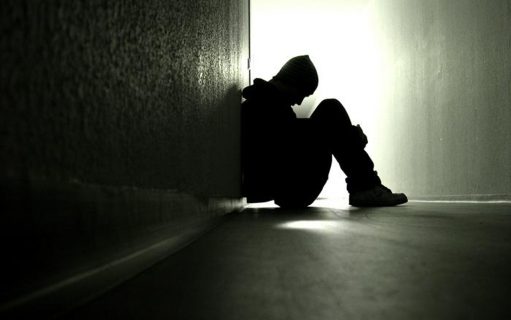
Emotional abuse is abuse.
I shouldn’t have to say it, but all too often people wait for bruises to appear before considering a relationship “actually” abusive. Psychological pain can be just as bruising as a slap or punch, even if it leaves no physical mark.
Emotional abuse (also called psychological abuse) is categorized by a pattern of behavior that leaves another person feeling isolated, degraded or worthless. It is a way for the abuser to maintain power and control in the relationship.
October is Domestic Violence Awareness Month, which means a lot of really great conversations are happening all over the internet about interpersonal violence. I want to pay particular attention to emotional abuse today because even though it’s one of the most common forms of abuse, it often goes unrecognized and undiscussed.
Young people, who are often uncertain of what a healthy relationship actually looks like, may think that emotionally abusive behavior is a normal way to express love.
Teens are still establishing their sense of self and asking important questions about who they are, including “am I lovable?” When young adults stay in an emotionally abusive relationship, their identity gets chipped away at. This is devastating to their self-esteem. Those who are abused often begin to believe what their abusers say about them—that they are worthless and un-lovable. This can lead to isolation, depression, dangerous coping mechanisms such as cutting and using drugs, and even suicide.
Identifying and naming abusive behaviors is one way that victims can regain some control of their lives. While emotional abuse can take many different forms, here are some of the most common ways I’ve seen it play out in teens’ lives.
Intimidation
Intimidation can be subtle, and includes veiled or indirect threats. I’ve had patients whose partners wait for them at their lockers every day, so they have no privacy and understand that they are being watched. This makes the abused feel like they are not in control, and have nowhere to hide. Constantly feeling that way can have a major effect on someone’s overall sense of safety, and often leads to anxiety.
Explicit threats
Other times, intimidation isn’t subtle at all. One patient’s partner told them, “I’m gonna get a bunch of girls to jump you if you break up with me.” Another common threat is that the abuser will say, “I am going to kill myself if you break up with me.” This specific threat leads to the abused feeling guilty, and pushing their own needs aside and staying in this relationship. Things get even more complicated if children are involved. It’s common for abusive partners to threaten to take their partner to court and take their child away from them if they break up, or do something that they don’t like.
Slut shaming
This can also be a form of intimidation, such as, “if you go to that party without me, I’ll tell everyone what we did in bed together.” It’s also a common way to shame a partner: “Since I’ve already tapped that, no one else will want you.” This makes the abused feel trapped, unwanted and ashamed.
Name calling
This behavior is easier to identify. Abusers may directly call their partner ugly, stupid and worthless. Over time, the abused may come to believe what is being said about them, leading to depression and withdrawal.
Gas lighting
This is when an abuser convinces their partner that they remember an event or piece of information wrong. It leads to self-doubt, and becoming uncertain of their own memory and even sanity. Common phrases include “But I never promised that,” “I didn’t stay out late that night,” or “I was just joking.” Over time, it can make someone feel like they are going crazy.
Stonewalling
This is a refusal to communicate. It may look like a partner walking out in the middle of a fight or giving their partner the silent treatment when they’re upset. Sometimes people need to take a break from an argument to calm down and revisit the discussion later, and that’s ok (even healthy), but the behavior becomes abusive when it is continually used as a form of punishment for expressing desires or opinions that your partner doesn’t like. I’ve worked with patients whose partners completely ignored them during the school day, but expressed love and demanded affection when they were alone together. This makes the abused extremely confused and frustrated.
Discouraging and criticizing
“Why would you want to hang out with her?”; “You really want to join that club?”; “But everyone got an A on that test”; “You’re not going to wear that, are you?” Behavior that makes their significant other feel bad about their friends, goals, interests, or how they present themselves is unacceptable. This may lead to withdrawal and isolation—telltale signs of abuse.
Healthy relationships are based on Trust and Respect. Unfortunately, young people are rarely taught about abuse in a meaningful way. The more we talk about emotional abuse—and relationships in general—the more likely it is that young people will speak up about potentially abusive behavior. Talking about abuse is hard for anyone, but particularly for young people. Remember that it is never the victim’s fault. Those who have been abused may want to talk to a therapist—dealing with the psychological effects of abuse can be incredibly difficult, and therapists can help create a safe space for survivors to rediscover their personal identity.
Rachel Colon, LCSW, is a primary care social worker with over 10 years of experience working with survivors of domestic violence.
The Mount Sinai Adolescent Health Center provides comprehensive, confidential, judgment free health care—including mental health services—at no charge to over 10,000 young people every year. It is located in New York City. This column is not intended to provide medical advice, professional diagnosis, opinion, treatment or services to you or to any other individual, only general information for education purposes only.


